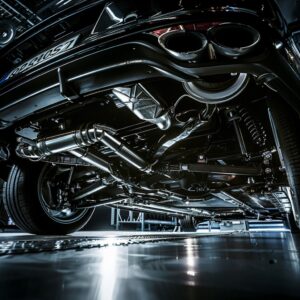Reliability and Maintenance
When you’re in the market for a new car, reliability and maintenance are two of the most crucial factors to consider. These aspects can significantly impact your overall ownership experience, influencing both your wallet and peace of mind. Car reviews provide essential insights into these factors, helping you make an informed decision. Let’s dive into the importance of reliability and maintenance in car reviews.
Understanding Car Reliability

Definition of Car Reliability
Car reliability refers to how consistently a vehicle performs its intended functions without requiring major repairs. It’s about dependability and the likelihood that your car will run smoothly over time.
Factors Influencing Reliability
Several factors influence a car’s reliability, including build quality, engineering, and the materials used. Regular maintenance and the driving habits of the owner also play significant roles.
Key Reliability Metrics
Breakdown Frequency
One of the primary metrics for reliability is the frequency of breakdowns. A car that rarely breaks down is considered highly reliable.
Longevity of Components
The durability of components, such as the engine, transmission, and electrical systems, also indicates reliability. Cars with long-lasting parts tend to have higher reliability ratings.
Warranty Coverage
Warranty coverage can be a good indicator of a car’s reliability. Manufacturers confident in their vehicle’s reliability often offer longer warranties.
Common Reliability Issues
Engine Problems
Engine issues are among the most serious reliability concerns. Common problems include oil leaks, overheating, and timing belt failures.
Transmission Issues
Transmission problems, such as slipping gears and transmission fluid leaks, can be costly and disruptive.
Electrical System Failures
Electrical issues, like problems with the battery, alternator, or electronic control units, can lead to unexpected breakdowns.
Evaluating Reliability in Car Reviews
Sources of Reliability Data
Reliability data can be sourced from consumer reports, manufacturer data, and independent testing organizations. These sources provide a comprehensive view of a car’s reliability.
Importance of Consumer Feedback
Consumer feedback offers real-world insights into a car’s reliability. Reviews from car owners highlight common issues and the overall dependability of the vehicle.
Role of Professional Reviews
Professional reviews often include reliability ratings based on extensive testing and expert analysis. These reviews can help you understand the long-term reliability prospects of a car.
Understanding Car Maintenance
Definition of Car Maintenance
Car maintenance involves regular inspections, servicing, and repairs to keep a vehicle in optimal condition. It ensures the car runs smoothly and safely.
Types of Maintenance (Preventive, Predictive, Corrective)
Maintenance can be categorized into preventive, predictive, and corrective types, each serving a specific purpose.
Preventive Maintenance
Regular Servicing
Regular servicing, such as oil changes, tire rotations, and brake inspections, is crucial for preventing major issues. It keeps your car running efficiently.
Importance of Scheduled Maintenance
Scheduled maintenance, as recommended by the manufacturer, helps maintain the car’s performance and reliability. Following the maintenance schedule can prevent costly repairs.
Predictive Maintenance
Using Technology to Predict Failures
Predictive maintenance uses technology to monitor the car’s condition and predict potential failures. Sensors and diagnostic tools provide early warnings, allowing for timely interventions.
Benefits of Predictive Maintenance
Predictive maintenance can save you time and money by addressing issues before they become major problems. It reduces the likelihood of unexpected breakdowns.
Corrective Maintenance
Addressing Issues as They Arise
Corrective maintenance involves fixing problems as they occur. While it’s sometimes unavoidable, relying solely on corrective maintenance can be costly.
Cost Implications
Ignoring preventive and predictive maintenance often leads to more significant issues, resulting in higher repair costs and longer downtime.
Evaluating Maintenance in Car Reviews
Maintenance Costs
Car reviews often include information about maintenance costs. Some cars are more expensive to maintain due to the cost of parts and labor.
Availability of Parts
The availability of replacement parts affects maintenance. Cars with readily available parts are easier and cheaper to maintain.
Ease of Maintenance
Some cars are designed with maintenance in mind, making routine tasks simpler. Reviews may highlight these user-friendly features.
Impact of Reliability on Car Ownership
Long-Term Cost Savings
Reliable cars tend to have lower long-term costs due to fewer breakdowns and repairs. Investing in a reliable car can save you money over its lifespan.
Peace of Mind
A reliable car provides peace of mind, knowing you’re less likely to experience unexpected issues. It makes your driving experience more enjoyable and stress-free.
Impact of Maintenance on Car Ownership
Maintaining Car Value
Regular maintenance helps retain a car’s value. Well-maintained cars are more attractive to buyers and can command higher resale prices.
Reducing Downtime
Proper maintenance reduces the likelihood of breakdowns, minimizing downtime. This is especially important for those who rely on their car for daily transportation.
Balancing Reliability and Maintenance
Importance of Both for Overall Ownership Experience
Both reliability and maintenance are crucial for a positive ownership experience. Reliable cars with manageable maintenance needs offer the best of both worlds.
Achieving the Right Balance
Finding the right balance involves choosing a car with a solid reliability record and reasonable maintenance requirements. Reviews can help identify such vehicles.
Technological Advances in Car Reliability and Maintenance

Role of Advanced Diagnostics
Advanced diagnostic tools allow for more accurate detection of potential issues. They help in maintaining the car’s reliability by enabling timely repairs.
Smart Maintenance Systems
Modern cars often come equipped with smart maintenance systems that alert owners to upcoming service needs. These systems enhance reliability by ensuring timely maintenance.
Conclusion
In conclusion, understanding the reliability and maintenance aspects of a car is vital for making an informed purchase decision. Car reviews offer invaluable insights into these factors, guiding you toward a vehicle that will serve you well in the long run. By prioritizing both reliability and maintenance, you can enjoy a smooth, cost-effective, and stress-free ownership experience.
FAQs
What is the most reliable car brand?
Brands like Toyota, Honda, and Lexus are often cited as the most reliable due to their consistent performance and durability.
How often should I perform preventive maintenance?
Preventive maintenance should be performed according to the manufacturer’s recommendations, typically every 5,000 to 10,000 miles or every 6 months, whichever comes first.
What are the most common reliability issues in cars?
Common reliability issues include engine problems, transmission failures, and electrical system malfunctions. Regular maintenance can help mitigate these issues.
How can I reduce maintenance costs?
To reduce maintenance costs, follow the recommended maintenance schedule, use high-quality parts, and address issues promptly before they escalate.
Why is car reliability important?
Car reliability is important because it ensures a dependable, trouble-free driving experience, reduces long-term costs, and provides peace of mind.
